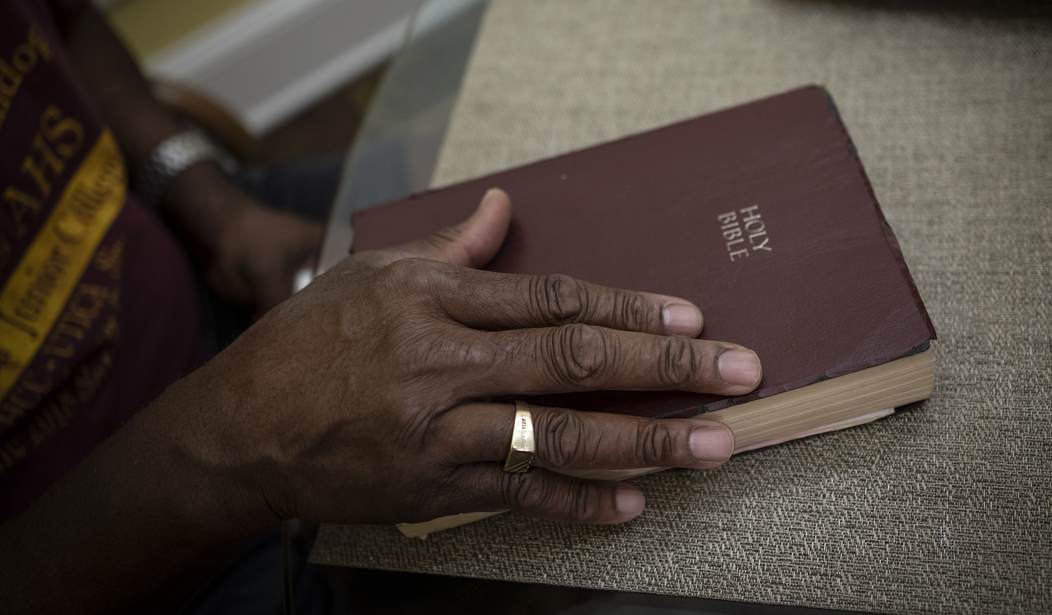"Love is love." "Science is science." Homes and offices in Washington, D.C. must display every politically correct lawn sign there is. Could it be these signs give a sense of belonging, the kind that used to be provided by organized religion? And what does "Love is love" and "Science is science" really mean?
This was the gist of remarks made by Los Angeles Archbishop Jose Gomez at a recent conference in Madrid. He was asked to speak about some of the movements that seem to be playing a role that religion might otherwise do -- "social justice," "wokeness," "identity politics," "intersectionality" and the like.
They are "replacements and rivals to traditional religious belief," Gomez says. In seeking to replace traditional religion, he posits that this is the woke "salvation story": "We cannot know where we came from, but we are aware that we have interests in common with those who share our skin color or our position in society. We are also painfully aware that our group is suffering and alienated, through no fault of our own. The cause of our unhappiness is that we are victims of oppression by other groups of society. We are liberated and find redemption through our constant struggle against our oppressors, by waging a battle for political and cultural power in the name of creating a society of equity."
It's worth noting that Gomez, who is currently president of the U.S. Conference of Catholic Bishops, was born in Mexico. He leads the biggest and most diverse archdiocese in the United States, ministering in 40 languages. He's not speaking from an ivory tower, oblivious to the human suffering of which he speaks. A constant voice for the unborn and immigrants, his was not a screed against left-wing causes, as some have suggested on the internet. He's a pastor thinking through what is going on in the world today and how to engage with it.
Recommended
"Of course, we all want to build a society that provides equality, freedom, and dignity for every person. But we can only build a just society on the foundation of the truth of God and human nature," Gomez says. He sees the leading theories and ideologies of the day as "profoundly atheistic. They deny the soul -- the spiritual, transcendent dimension of human nature; or they think that it is irrelevant to human happiness. They reduce what it means to be human to essentially physical qualities -- the color of our skin, our sex, our notions of gender, our ethnic background or our position in society." These secular movements, he says, "are causing new forms of social division, discrimination, intolerance and injustice.
"I see only too clearly how bad people are," Gomez quotes Dorothy Day, "I wish I did not see it so. It is my own sins that give me such clarity. But I cannot worry much about your sins and miseries when I have so many of my own. ... My prayer from day to day is that God will so enlarge my heart that I will see you all, and live with you all, in His love."
We don't have all the answers -- it takes a real strength to admit this, one that goes against the tide of our culture. There's a certain confidence that comes with humility. While giving voice to "individual conscience and tolerance," Gomez said, "we need to promote greater humility and realism about the human condition. Acknowledging our common humanity means recognizing our common frailty. The truth is that we are all sinners, people who want to do the right thing but often do not."
Gomez's talk is an opportunity to take a few steps back and renew our confidence in the values that foster a robust civil society fueled by gratitude.
Kathryn Jean Lopez is senior fellow at the National Review Institute, editor-at-large of National Review magazine and author of the new book "A Year With the Mystics: Visionary Wisdom for Daily Living." She is also chair of Cardinal Dolan's pro-life commission in New York. She can be contacted at klopez@nationalreview.com.
























Join the conversation as a VIP Member